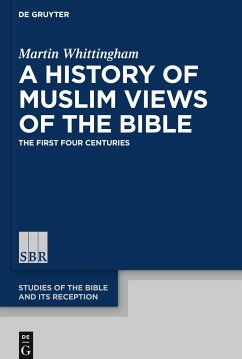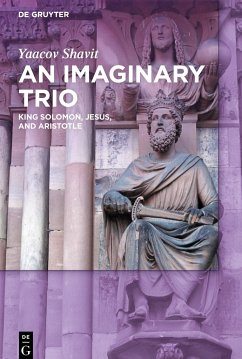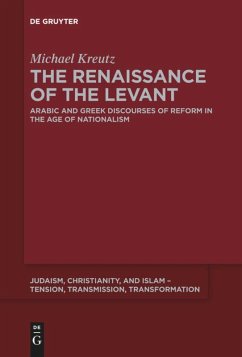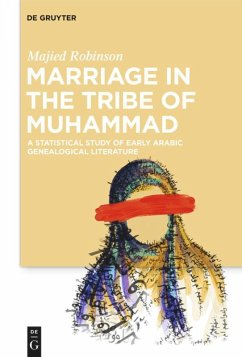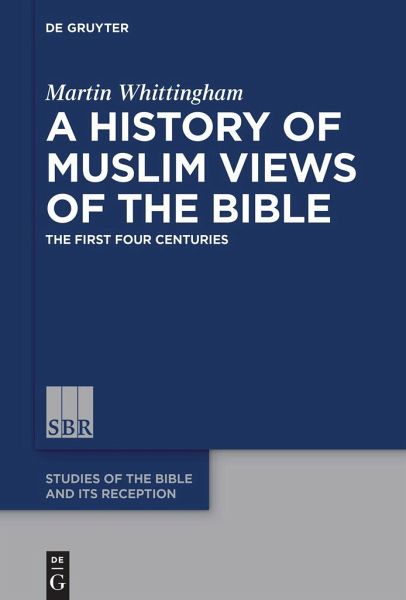
A History of Muslim Views of the Bible
The First Four Centuries
Versandkostenfrei!
Versandfertig in 6-10 Tagen
29,95 €
inkl. MwSt.
Weitere Ausgaben:

PAYBACK Punkte
0 °P sammeln!
This book is the first of two volumes that aim to produce something not previously attempted: a synthetic history of Muslim responses to the Bible, stretching from the rise of Islam to the present day. It combines scholarship with a genuine narrative, so as to tell the story of Muslim engagement with the Bible.Covering Sunni, Imami Shi'i and Isma'ili perspectives, this study will offer a scholarly overview of three areas of Muslim response, namely ideas of corruption, use of the Biblical text, and abrogation of the text. For each period of history, the important figures and dominant trends, al...
This book is the first of two volumes that aim to produce something not previously attempted: a synthetic history of Muslim responses to the Bible, stretching from the rise of Islam to the present day. It combines scholarship with a genuine narrative, so as to tell the story of Muslim engagement with the Bible.
Covering Sunni, Imami Shi'i and Isma'ili perspectives, this study will offer a scholarly overview of three areas of Muslim response, namely ideas of corruption, use of the Biblical text, and abrogation of the text. For each period of history, the important figures and dominant trends, along with exceptions, are identified. The interplay between using and criticising the Bible is explored, as well as how the respective emphasis on these two approaches rises and falls in different periods and locations.
The study critically engages with existing scholarship, scrutinizing received views on the subject, and shedding light on an important area of interfaith concern.
Covering Sunni, Imami Shi'i and Isma'ili perspectives, this study will offer a scholarly overview of three areas of Muslim response, namely ideas of corruption, use of the Biblical text, and abrogation of the text. For each period of history, the important figures and dominant trends, along with exceptions, are identified. The interplay between using and criticising the Bible is explored, as well as how the respective emphasis on these two approaches rises and falls in different periods and locations.
The study critically engages with existing scholarship, scrutinizing received views on the subject, and shedding light on an important area of interfaith concern.




